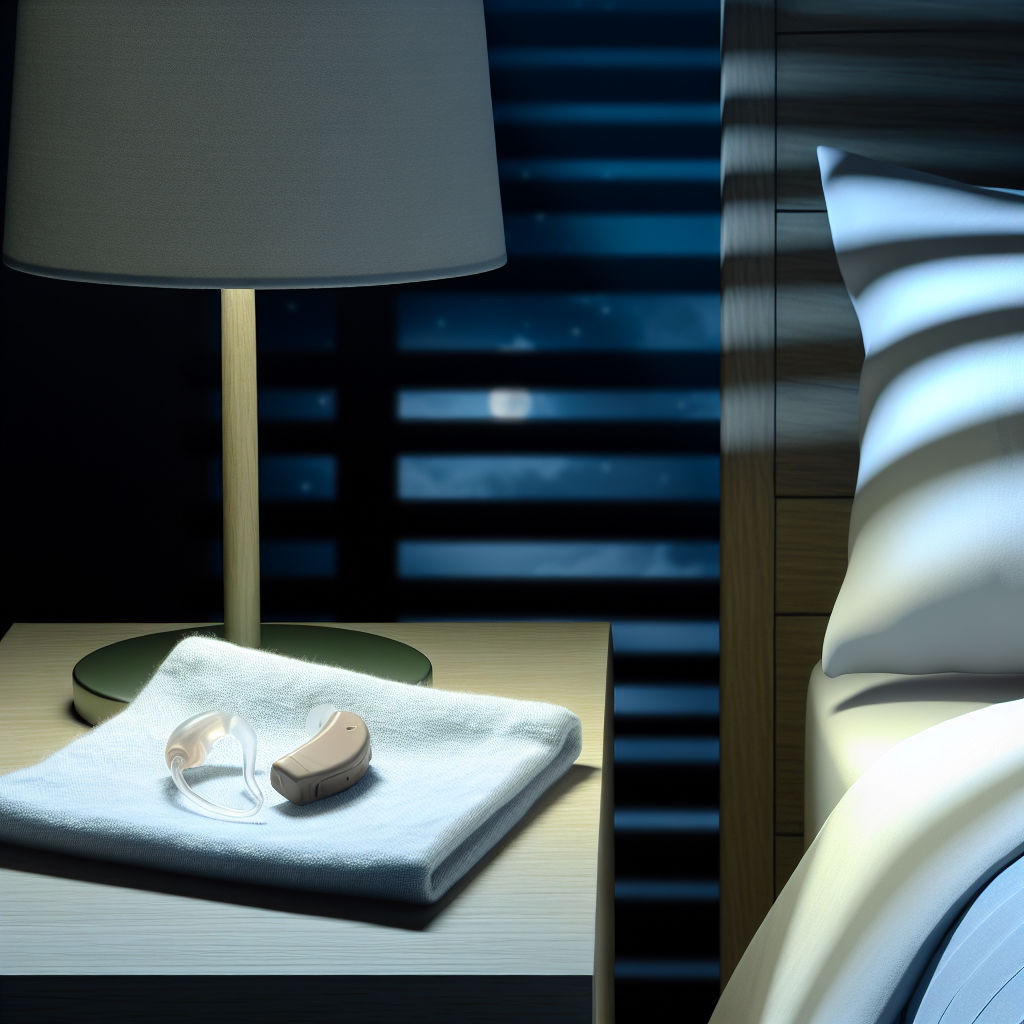
Many hearing aid users wonder whether it’s safe to sleep with their devices in overnight. While it might seem convenient to leave your hearing aids in while sleeping, it’s generally not recommended to wear hearing aids overnight for several important health and maintenance reasons.
Why You Shouldn’t Sleep with Hearing Aids In
Leaving your hearing aids in overnight can lead to several potential problems that could affect both your ear health and the longevity of your devices:
- Ear canal irritation: Extended wear can cause skin irritation and inflammation in your ear canal
- Moisture buildup: Trapped moisture during sleep can damage the delicate electronic components
- Wax accumulation: Continuous wear prevents natural ear cleaning and can lead to excessive wax buildup
- Battery drain: Keeping devices on unnecessarily reduces battery life significantly
- Feedback and discomfort: Position changes during sleep can cause uncomfortable feedback or pressure
Proper Nighttime Hearing Aid Care
Following a proper nighttime routine for your hearing aids is essential for maintaining both your ear health and device performance:
- Remove your hearing aids before going to bed
- Clean the devices gently with a soft, dry cloth
- Open the battery compartment to allow air circulation
- Store the hearing aids in a protective case or dehumidifier
- Keep them away from moisture, heat, and pets
Exceptions and Special Circumstances
While the general rule is to remove hearing aids overnight, there are some special situations where temporary overnight wear might be considered:
- Hospital stays where communication with medical staff is critical
- Caring for young children or elderly family members who may need assistance
- Specific medical conditions requiring constant audio monitoring
Even in these cases, it’s important to consult with your audiologist first and take extra precautions to minimize risks.
Long-term Benefits of Removing Hearing Aids at Night
Establishing a consistent routine of removing your hearing aids overnight provides numerous benefits:
- Extended device lifespan and reduced need for repairs
- Better ear canal health and reduced infection risk
- Improved battery performance and cost savings
- Opportunity for thorough daily cleaning and maintenance
- Better sleep quality without potential device discomfort
When to Seek Professional Help
If you’re experiencing issues with your hearing aids or have concerns about proper care, it’s important to consult with hearing healthcare professionals. Signs that warrant professional attention include:
- Persistent ear pain or irritation
- Unusual discharge from the ear
- Changes in hearing aid performance
- Difficulty with proper fitting or comfort
Cal Hearing Services
At Cal Hearing, we provide comprehensive hearing care services to ensure your hearing aids function optimally and your ear health remains excellent. Our experienced team offers:
- Comprehensive hearing testing to assess your current hearing needs
- Professional hearing aid fitting services for optimal comfort and performance
- Specialized tinnitus therapy for those experiencing ringing in the ears
- Custom hearing protection solutions for various environments
- Expert hearing aid repairs to keep your devices functioning properly
We proudly serve multiple communities, and you can learn more about our service areas to find convenient locations near you.
Additional Resources for Hearing Aid Users
For more information about proper hearing aid care, maintenance tips, and hearing health, explore our comprehensive resources section and stay updated with the latest insights by reading our hearing health blog.
Conclusion
While it might be tempting to leave your hearing aids in overnight for convenience, removing them before sleep is the best practice for both your ear health and device longevity. Establishing a proper nighttime routine will help ensure your hearing aids continue to provide excellent service for years to come. Remember that proper care and professional guidance are key to maximizing your hearing aid investment and maintaining optimal hearing health.
If you have questions about your hearing aids or need professional assistance with fitting, maintenance, or repairs, don’t hesitate to reach out to our experienced team. Contact Cal Hearing today to schedule a consultation and ensure you’re getting the most from your hearing aids while maintaining excellent ear health.









